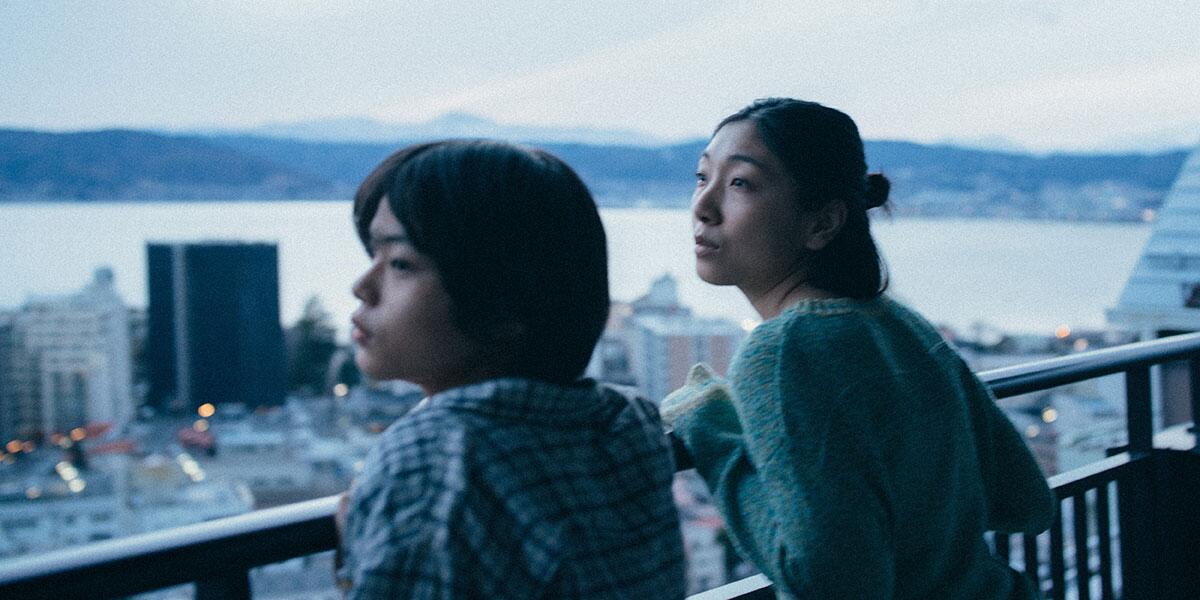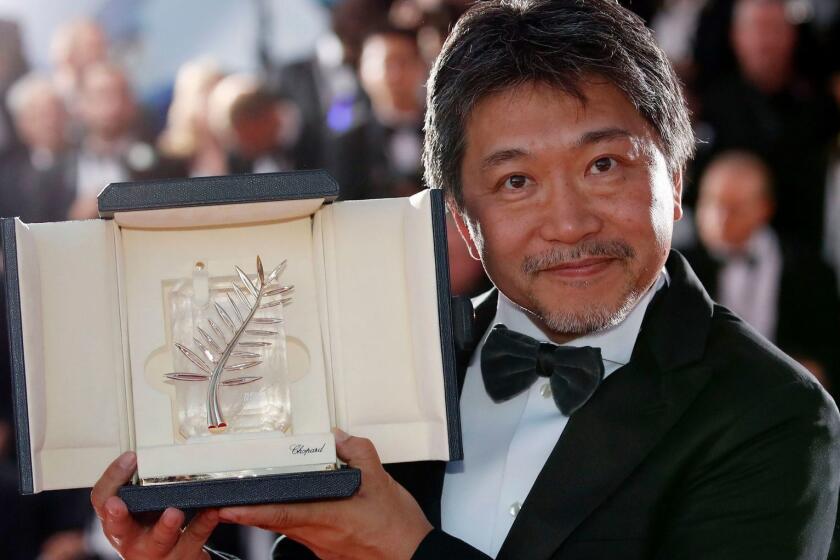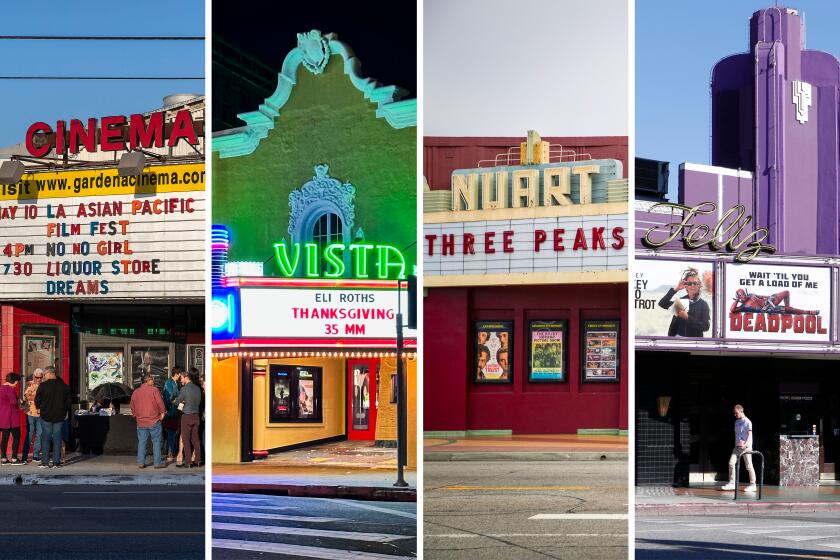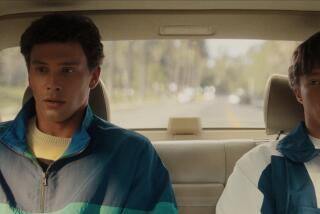Japan’s Hirokazu Kore-eda returns to home ground and delicate tensions in ‘Monster’

- Share via
In the days between a nighttime fire that consumes a building, and a monsoon hitting a mountain hideaway, Hirokazu Kore-eda’s “Monster” braids a tale in which the most consequential and mysterious element is what makes the human heart work the way it does. Set in and around a lakeside town school where a mother’s righteous clash with a new teacher parallels the growing bond between two outsider kids, this exquisitely rendered work from Kore-eda is a delicate web of compassion and embattlement: three separate views of one stretch of momentous time, spun and respun with care and craft.
But unlike the wily unknowability that iconically characterized “Rashomon,” the changing perspective of “Monster” is a patient bid for honest understanding, a way to achieve grace. A one-truth movie that’s nevertheless thick with human complexity, it rotates nimbly, in tandem with the plaintive score that marks the great Ryuichi Sakamoto’s last film work. Ultimately, what begins as a case of justifiable outrage ends up hiding a heartwarming story of acceptance. We just needed to see what we often don’t see, or don’t allow ourselves to recognize.
Kore-eda has long been Japan’s maestro of melancholy, his 2018 Cannes-winning gem “Shoplifters” bringing worldwide attention to his gift for broken souls and makeshift families. After location flexes in France (“The Truth”) and South Korea (“Broker”), he’s back on his home turf, but he’s never been this philosophically cagey with his storytelling and characters. That may be because he’s working with somebody else’s scenario for the first time in decades: a timepiece of incident and feeling from Yuji Sakamoto (who won this year’s Cannes screenplay prize) that slides easily into Kore-eda’s M.O. for chronicling desperate lives sussing out an uncertain existence.
On the last day of every Cannes Film Festival, word begins to leak out about which filmmakers from the competition have been called back for the closing-night awards ceremony.
In the early going, the mission of devoted, widowed single mom Saori (Sakura Ando) couldn’t be simpler: Learn what’s behind the newly strange, disquieting behavior in her sullen fifth-grade son, Minato (Sōya Kurokawa). She’s seen hair-cutting, strange disappearances, even leaping out of their moving car on a night she tracked him down to an abandoned hillside tunnel. And she’s already heard that a certain schoolteacher — Mr. Hori (Eita Nagayama) — has called him “pig brain” and gotten violent with him, so Saori confronts the school leadership about their problem hire.
The strangely unengaged, official response from a coterie of bowing teachers and the impassive principal (Yūko Tanaka), who we learn is experiencing a personal grief of her own, only inflames Saori more. But Hori, a lanky, awkward presence, suddenly drops the peacemaking act, accusing her son of being the real bully for targeting a sensitive, nonconformist classmate, Yori (Hinata Hiiragi).
Ando’s heartbreakingly distressed portrayal launches “Monster” on a raft of anxiety about the unexplained. But as the movie winds back to foreground instructor Hori’s POV, adding contextualizing reverse angles and extra information to every replayed moment after, a thornier reality emerges, one that absolves and complicates in equal measure. And Nagayama’s nervy portrayal, like a cosmic baton of Kafkaesque anguish handed off to him, keeps us just as riveted to a possible injustice.
We’ve mapped out 27 of the best movie theaters in L.A., from the TCL Chinese and the New Beverly to the Alamo Drafthouse and which AMC reigns in Burbank.
Once the focus lands on the touching reality between Minato and Yori, however, “Monster” has peeled away the fumbling intentions of adults to reveal a relationship between two lonely, imaginative children (effortlessly realized by their young portrayers) and what feels like a ground-level origin story of humanism. But also of the misapprehensions arising from it that we’ve already seen morph into the “monster”-ization of others, something that Kore-eda takes pains to elucidate.
The kids themselves, as if mirroring the movie they’re in, talk excitedly of a “big crunch” coming, when the universe will expand and pop and everything will go backward. Is their fairy-tale apocalypse — and the rebirth implied in it — sparked by the actions of the adults around them? Who knows. But as composer Sakamoto’s farewell piano motif bestows a merciful poignancy to the closing loop of “Monster,” behavioral mysteries don’t seem so ungraspable, and the truth finally resembles a prism of hope.
'Monster'
In Japanese with English subtitles
Rating: PG-13, for thematic material and brief suggestive material
Running time: 2 hours, 6 minutes
Playing: Landmark Nuart, West Los Angeles; AMC Atlantic Times Square 14, Monterey Park
More to Read
Only good movies
Get the Indie Focus newsletter, Mark Olsen's weekly guide to the world of cinema.
You may occasionally receive promotional content from the Los Angeles Times.












